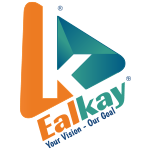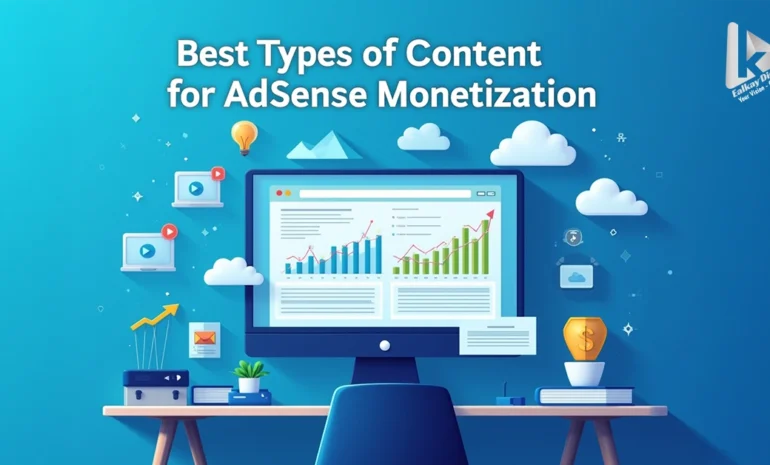Digital lead generation offers numerous advantages over traditional methods. A compelling value proposition is crucial in distinguishing your product or service in the marketplace. It articulates the unique benefits offered and addresses the needs of your target audience, playing a significant role in developing a pricing strategy that meets customer expectations.
Introduction to Lead Generation
Lead generation is the lifeblood of any business aiming for sustainable growth. It involves the process of attracting and converting potential customers into paying customers. This crucial aspect of business growth helps companies generate revenue and expand their customer base. Effective lead generation strategies are essential for creating a robust lead generation plan, optimizing lead generation efforts, and nurturing leads to convert them into paying customers. By focusing on these strategies, businesses can ensure a steady stream of potential customers, ultimately driving growth and profitability.
Understanding Lead Generation
Understanding lead generation is fundamental for businesses to develop effective lead generation strategies. At its core, lead generation involves generating leads through various marketing campaigns, such as content marketing, email marketing, and social media marketing. The primary goal is to attract potential customers and convert them into paying customers. To achieve this, businesses need to have a deep understanding of their target audience, create high-quality content, and utilize effective lead generation channels. By doing so, they can attract potential customers, generate high-quality leads, and ultimately drive business growth.
Understanding ROI in Marketing
Understanding the ROI in marketing is crucial for businesses aiming to allocate their resources effectively. Tracking and measuring actual ROI in lead generation efforts is essential to demonstrate the return on investment accurately. In today’s rapidly evolving landscape, digital marketing ROI has become an essential metric for evaluating the success of marketing strategies. This is particularly important when comparing digital marketing efforts’ potential ROI with traditional methods. Digital platforms offer businesses unique opportunities to reach a wider audience, often at a lower cost than conventional marketing channels.
Evaluating whether digital marketing can yield a higher return on investment than traditional approaches involves analyzing the effectiveness and efficiency of each marketing channel. This blog will delve into the intricacies of digital lead generation and its advantages over traditional methods, providing insights into how businesses can optimize their marketing strategies for maximum ROI.
Advantages of Digital Lead Generation
Digital lead generation offers numerous benefits, making it a superior choice compared to traditional marketing methods. Capturing leads is a crucial initial step in this process, as it involves collecting potential customers’ names and contact information to guide them through the sales funnel. This approach allows businesses to target specific audiences with precision, utilizing data-driven insights to tailor marketing efforts. As a result, companies can optimize their campaigns for increased efficiency. Furthermore, digital lead generation is inherently scalable, allowing businesses to adjust their strategies as needed without significant investments.
The immediacy of digital marketing also means businesses can engage with potential customers in real-time, enhancing customer interactions and driving higher conversion rates. Overall, the customization, scalability, and instant nature of digital lead generation contribute to its effectiveness and higher potential for ROI.
Enhanced Consumer Engagement and Interaction
Enhanced consumer engagement and interaction are key advantages offered by digital lead generation. Creating valuable content is essential for enhancing consumer engagement, as it establishes credibility and authority in the market. Through social media platforms, digital marketing agencies can increase engagement rates by leveraging interactive content. This boosts customer engagement and enhances the effectiveness of content marketing efforts. Ultimately, digital strategies provide businesses with tools to create meaningful interactions that can drive higher ROI compared to traditional methods.
Easier and More Accurate Measurement of Marketing Results and Performance
Digital marketing techniques make it easier and more accurate for B2B marketers to measure the results and performance of their content marketing strategies. A lead scoring system is crucial in this process as it helps in categorizing leads based on quality and readiness to purchase. By utilizing digital content, businesses can precisely allocate their marketing budget to effective campaigns. This streamlined approach allows marketers to assess the cost of marketing accurately, optimizing their digital marketing campaigns for maximum impact and enhanced ROI.
Expanding Your Horizons: Achieving a Broader Audience Reach through Digital Channels
Expanding your horizons with digital channels allows businesses to achieve a broader audience reach, surpassing traditional benchmarks for response rates. Professional networking, especially through platforms like LinkedIn, plays a crucial role in connecting with potential leads and maximizing outreach. By optimizing digital marketing spend and leveraging tools like marketing automation, companies can enhance content marketing ROI. Utilizing diverse digital marketing channels ensures that brands effectively connect with a wider audience, maximizing impact and ensuring higher returns on investment.
Cost-Effectiveness Compared to Traditional Methods
Digital lead generation offers significant cost-effectiveness compared to traditional methods. The overall costs associated with digital lead generation are generally lower due to factors such as service level, expertise, agency location, and pricing models. The cost per acquisition is often lower, allowing businesses to optimize their marketing investments efficiently. Unlike traditional marketing strategies like cold outreach, digital strategies enable more precise targeting of audiences. Statistics show that identifying a specific target audience drastically reduces the average cost per lead. This strategic approach maximizes budget efficiency, resulting in a better return on investment.

Personalization and Automation Benefits
Digital lead generation offers unparalleled personalization and automation benefits. Personalizing marketing messages to cater to individual leads is crucial, as it enhances the relevance of communications and increases the chances of conversion by addressing specific interests and needs. By enhancing their online presence, B2B businesses can leverage search engine optimization and digital advertising to run effective digital campaigns. This not only attracts targeted prospects but also provides valuable insights. These elements together maximize ROI, positioning businesses ahead of competitors through a strong digital presence and informed marketing strategies.
Comprehensive Overview of Essential Digital Marketing Strategies
Comprehensive digital marketing strategies are crucial for aligning with business goals and achieving success in lead generation. By incorporating effective strategies, including content and generation approaches, businesses can enhance digital marketing success. These tactics ensure that all efforts are streamlined and focused, ultimately driving results that align with the business objectives and delivering a strong return on investment.
Exploring the Impact of Email Marketing on Lead Generation and ROI
Exploring the benefits of email marketing on lead generation and ROI offers insightful findings. Tailored email campaigns boost email deliverability, directly enhancing lead generation efforts. By crafting personalized emails, companies can significantly elevate their return on investment. This strategic approach ensures that email campaigns resonate with the target audience, maximizing engagement and translating to improved leads and profitability.
The Impact of Content Marketing on Lead Generation and ROI
Content marketing significantly influences lead generation and ROI. Partnering with a content marketing agency can help businesses develop effective content marketing strategies. A robust content strategy delivers relevant content that engages the target audience. Well-executed content marketing initiatives drive brand awareness and generate leads. By focusing on content marketing ROI, businesses can effectively track performance. This approach enhances lead generation efforts, ultimately boosting profitability and ensuring a successful return on investment.

Maximizing Lead Generation and ROI Through Effective Utilization of CRM Systems
Maximizing lead generation and ROI is achievable through the effective utilization of CRM systems. Sales Qualified Leads (SQLs) play a crucial role in this process, as they have undergone an evaluation process and are deemed ready for direct sales engagement. A well-implemented strategy taps into key metrics like click-through rate and success rate. By targeting broad audiences effectively, businesses can optimize their lead generation strategy. CRM systems facilitate streamlined processes and insightful data analysis, ensuring enhanced engagement and profitability.
Leveraging Predictive Analytics for Enhanced Lead Generation and Improved ROI
Leveraging predictive analytics can significantly enhance lead generation efforts and improve ROI. Marketing Qualified Leads (MQLs) are crucial in this process, as they have shown a significant level of engagement with a company’s offerings, such as downloading content or subscribing to newsletters. By analyzing data from Google Analytics and social media channels, businesses can identify qualified leads and target specific audience segments effectively. This approach turns visitors into leads and smoothly guides them through the sales funnel. Well-targeted generation campaigns optimize engagement, ultimately boosting profitability and campaign success.
The Advantages and Benefits of Traditional Marketing Methods
Traditional marketing methods offer distinct advantages and benefits by targeting potential customers through established channels. It is crucial to align marketing strategies with the characteristics of the target market to enhance engagement and ensure effective outreach through tailored content. Techniques such as video marketing and strategic email campaigns are familiar and trusted by many audiences. Additionally, they provide opportunities to build loyal customer bases. While traditional methods may not target niches as precisely as digital strategies, their wide reach and dependability still make them a valuable component of a comprehensive marketing approach.
The Tangibility and Familiarity of Traditional Marketing Methods
Traditional marketing methods are lauded for their tangibility and familiarity, fostering direct engagement with potential customers. Creating detailed buyer personas to better understand target audiences is essential for effective lead generation. While digital strategies like mobile marketing and marketing automation tools are on the rise, content marketing campaigns built on these traditional foundations continue to drive business growth. Incorporating content for search engines and leveraging conversion metrics ensure brands maximize visibility, much like Google Ads in the digital realm.
Established Consumer Trust
Traditional marketing methods often benefit from established consumer trust, as audiences are generally more familiar with these channels. Understanding target audience pain points is essential for effective lead generation, as it allows marketers to create buyer personas that reflect these challenges and tailor their strategies accordingly. Approaches like print advertising and television ads have long histories of reliability, building confidence, and encouraging strong brand loyalty among potential customers.
Optimizing Lead Generation Efforts
Optimizing lead generation efforts is crucial for businesses to maximize their return on investment (ROI). To achieve this, businesses need to analyze key metrics such as conversion rates, lead quality, and customer lifetime value. Implementing effective lead generation strategies, such as lead scoring systems, helps in qualifying and prioritizing leads. Additionally, continuous monitoring and improvement of lead generation campaigns are essential to ensure the generation of high-quality leads. By focusing on these optimization techniques, businesses can generate more leads and increase their revenue, ensuring a higher ROI.
The Importance of High Quality Leads
High-quality leads are essential for businesses to generate revenue and achieve growth. These leads are more likely to convert into paying customers due to their higher level of interest and engagement with the business. To generate high-quality leads, businesses need to implement effective lead generation strategies, such as content marketing and email marketing. Utilizing lead scoring systems to qualify and prioritize leads is also crucial. By focusing on generating high-quality leads, businesses can ensure a higher conversion rate, leading to increased revenue and sustainable growth.
Challenges of Digital Lead Generation: Navigating Competition and Technology Dependence
Digital lead generation, while offering numerous advantages, presents its own set of challenges. Collaborating with lead generation companies can significantly improve sales outcomes by providing targeted prospects and proven strategies. One significant hurdle is the intense competition in the digital landscape, where countless businesses vie for the attention of the same audience segments. This saturation requires companies to constantly innovate and adapt to stand out. Additionally, there’s a heavy reliance on rapidly evolving technology.
Businesses depend on various digital tools and platforms for efficient lead generation, which can be both costly and complex to manage. These platforms require continuous updates and technical know-how, adding to operational demands. Not to mention, with algorithms and trends constantly shifting, staying ahead in the game demands constant vigilance and flexibility. Navigating these challenges requires a well-strategized approach, balancing advanced tools with creativity to ensure effective customer acquisition and a respectable return on investment (ROI).
Challenges of Traditional Marketing: Measuring Results and Managing Higher Costs
Traditional marketing methods, while familiar and trusted, come with notable challenges, particularly in measuring results and managing higher costs. Smaller, niche businesses typically acquire fewer leads compared to larger companies in more prominent sectors, suggesting a baseline for lead generation relative to company size. Unlike digital marketing, where analytics provide real-time data on campaign performance, traditional strategies often rely on estimations and indirect metrics, making it difficult to accurately assess their effectiveness. Additionally, traditional advertising channels like television, radio, and print are typically more expensive, posing significant budgetary constraints for businesses.
This financial burden is compounded by the requirement for substantial upfront investments without the immediate feedback digital platforms offer. Consequently, businesses using traditional marketing need to exercise careful budget management and patience to fully comprehend the impact of their campaigns, emphasizing the importance of strategic planning to balance costs and outcomes.
Balancing Digital and Traditional Strategies
Finding the right mix between digital and traditional lead generation strategies is crucial for maximizing ROI. Collaborating with sales and marketing teams to develop effective lead generation strategies is essential for determining the best approach to attract customers and maximize results. By integrating both approaches, businesses can broaden their reach, leveraging the precision of digital analytics with the credibility and wide visibility of traditional media. This synergy allows for diversified audience engagement and optimized resource allocation.
Future of Marketing ROI: Digital vs. Traditional
As technology evolves, the future of marketing ROI will increasingly favor digital over traditional methods. Tracking the revenue generated from lead generation efforts is crucial for evaluating financial performance and return on investment (ROI). Digital platforms provide precise data analytics and cost-effective strategies, allowing businesses to target audiences more efficiently and adapt quickly to market changes. However, traditional marketing will remain valuable for building brand credibility and reaching broader demographics.
Conclusion: Ealkay Digital's Perspective on Maximizing ROI with Balanced Marketing Strategies
At Ealkay Digital, we believe that achieving the best ROI requires a strategic balance between digital and traditional marketing efforts. A well-crafted lead generation campaign is crucial in maximizing ROI, as it leverages the high engagement levels and accessibility of video marketing to outperform traditional content formats. By harnessing the analytical power and cost-efficiency of digital platforms along with the trust and reach of traditional media, businesses can effectively acquire leads and amplify their market presence. Embracing this integrated approach ensures that organizations stay ahead in a competitive landscape, optimizing their marketing investments for sustained growth and success.








